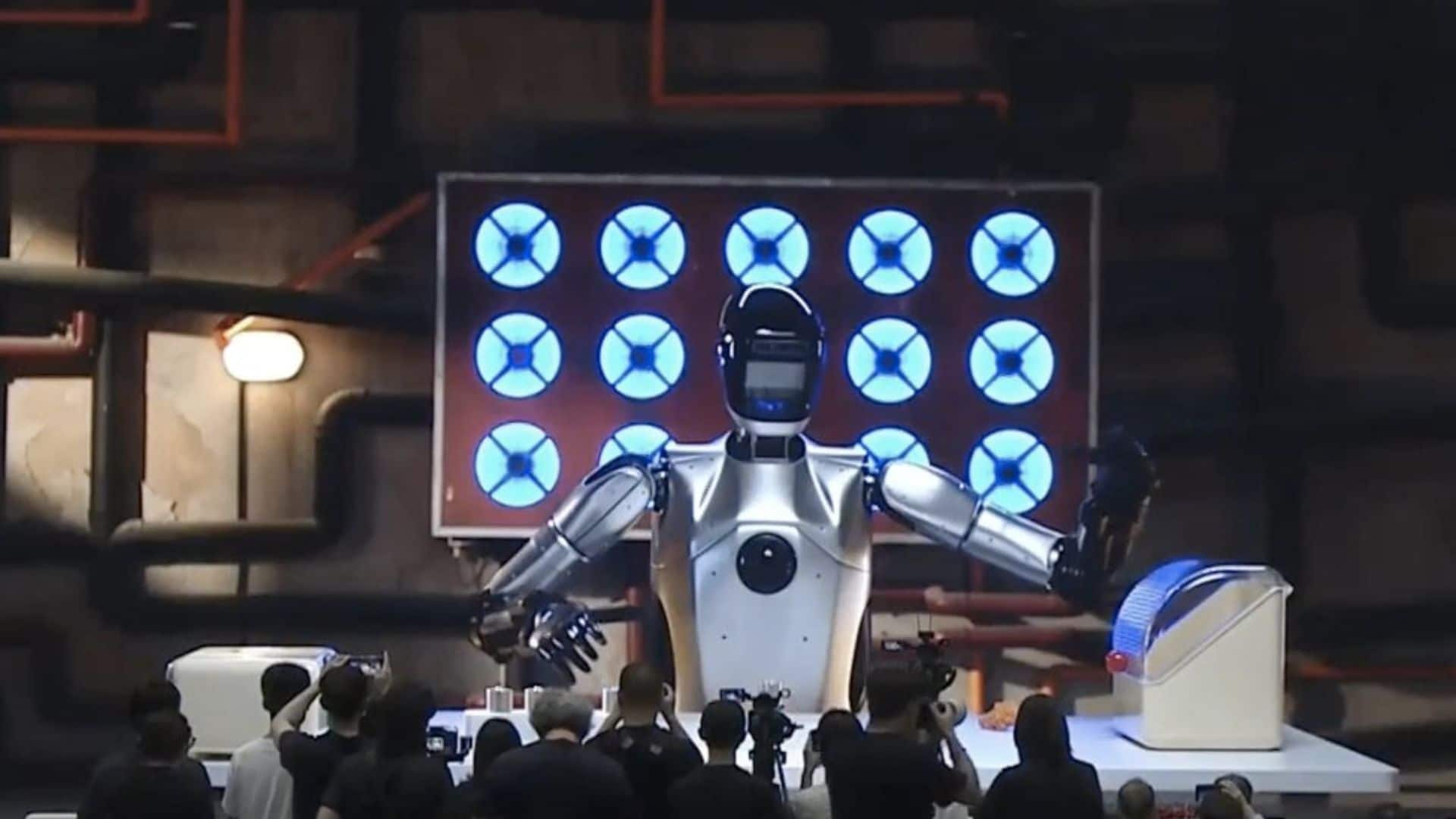
China's Qinglong: A revolution in automation on the horizon
What's the story
China's first full-sized general-purpose humanoid robot, Qinglong, was recently unveiled at the World Artificial Intelligence Conference (WAIC) 2024 in Shanghai.
The robot, developed by Shanghai-based National and Local Co-Built Humanoid Robotics Innovation Center, stands 180cm tall.
Demonstrating its capabilities, Qinglong performed desk cleaning tasks following voice instructions from staff members.
The robot has human-like motion control and can walk stably on slopes.
It has a highly bionic torso and anthropomorphic motion control, supporting multi-modal mobility, interaction, perception, and manipulation.
Technological breakthroughs
Take a look at Qinglong's advanced features
Qinglong boasts 43 active degrees of freedom, a joint peak torque of 400Nm, and 400 TOPs (Tera Operations Per Second) of computational power.
"We have released the full stack technology related to humanoid robots to the public as open source," said Xu Bin, general manager of the innovation center.
He also projected that this technology will find greater applications in household services and caregiving over the next five to 10 years.
Robot capabilities
Performance and future plans
At the conference, Qinglong demonstrated its ability to arrange bread and fruit separately using its steel fingers.
The robot is capable of rapid walking and agile obstacle avoidance.
"In the Year of the Dragon this year, we named our humanoid robot Qinglong and initiated an open-source community for humanoid robotics," said Jiang Lei, chief scientist of the innovation center.
Lei also revealed plans to introduce a new humanoid robot model every year, each named after one of Chinese zodiac animals.
Conference highlights
Funding and participation at the WAIC 2024
The development of Qinglong was funded with a registered capital of CNY 1 billion ($140 million).
The robot was among the latest innovations displayed at the WAIC 2024.
The conference saw participation from 500 exhibitors, including global giants such as Tesla and Microsoft, showcasing more than 1,500 innovative products.
This year's theme was "Governing AI for Good and for All," aiming to establish international cooperation and exchange platforms featuring openness, inclusiveness, and equal participation.